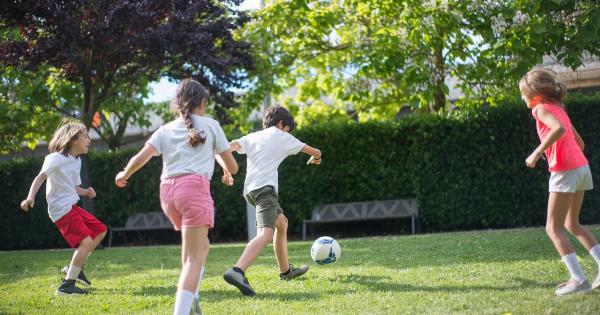Parenting is an ever-evolving journey, and every parent wants the best for their child. However, in today’s fast-paced world, there is a growing phenomenon known as helicopter parenting.
Helicopter parents are those who excessively hover over their children, constantly monitoring and intervening in their lives. While the intentions of helicopter parents may be well-meaning, there are several negative consequences associated with this parenting style.
In this article, we will explore the signs of helicopter parenting, its effects on children, and strategies to strike a balance between being involved and overly controlling.
What is Helicopter Parenting?
Helicopter parenting refers to an overprotective style of parenting where parents are excessively involved in their children’s lives.
These parents constantly hover over their children, monitoring their every move and intervening in every aspect of their lives. Helicopter parents often have high levels of anxiety and fear of their children experiencing failure or harm, leading them to micromanage every aspect of their lives.
This style of parenting has become more prevalent in recent years due to several reasons such as increased societal pressure, fear of children’s safety, and a desire for academic or social success.
While it is natural for parents to want to protect their children, helicopter parenting can have significant negative effects on the emotional development and independence of children.
Signs of Helicopter Parenting
Identifying whether you exhibit signs of helicopter parenting is the first step towards finding a better balance. Here are some common signs to look out for:.
1. Constantly Monitoring
Helicopter parents tend to constantly monitor their children’s activities, both online and offline. They may excessively check their child’s browser history, social media accounts, text messages, and whereabouts.
This constant surveillance can lead to a lack of privacy and trust in the parent-child relationship.
2. Making All Decisions for the Child
Another sign of helicopter parenting is making decisions for the child, even in situations where the child could handle it independently.
These parents might decide what hobbies, extracurricular activities, or even career paths their child should pursue, without considering their child’s own interests and desires.
3. Overprotectiveness
Helicopter parents tend to be overprotective, shielding their children from any potential harm or failure. They may intervene in conflicts, protect them from consequences, and prevent them from taking risks.
While protection is essential, excessive overprotectiveness can hinder a child’s ability to learn and grow from their experiences.
4. Checking Academic Progress Constantly
Helicopter parents often exhibit a strong focus on their child’s academic progress. They continuously check the child’s grades, assignments, and homework, and may even pressure teachers for special treatment or better grades.
This constant pressure puts immense stress on the child and may negatively impact their self-esteem and motivation.
5. Inability to Let Go
Helicopter parents struggle to let their children be independent, even as they grow older. They find it challenging to release control and allow their children to make their own decisions or face challenges.
This can lead to a lack of self-reliance and confidence in children.
The Effects of Helicopter Parenting
While helicopter parenting may stem from a place of love and concern, its effects on children can be far-reaching. Here are some potential consequences associated with helicopter parenting:.
1. Low Self-Esteem and Self-Confidence
Constant monitoring and intervention can lead children to doubt their abilities. When parents take charge of every decision and action, children may develop low self-esteem and lack the confidence to handle challenges independently.
2. Reduced Resilience
Helicopter parenting shields children from failures and disappointments. While protection is necessary, shielding children from every setback prevents them from developing resilience.
Resilience is a vital life skill that helps individuals navigate difficult situations and bounce back from failure.
3. Dependence on Parental Guidance
Children of helicopter parents often become overly reliant on their parents for guidance and decision-making. They struggle to trust their own instincts and may constantly seek approval and validation from their parents well into adulthood.
4. Impaired Problem-Solving Skills
When parents consistently solve problems for their children, they miss out on opportunities to develop essential problem-solving skills.
Helicopter parenting can hinder a child’s ability to think critically, make decisions, and find solutions independently.
5. Strained Peer Relationships
Children who are helicoptered by their parents often struggle to form healthy peer relationships.
Overprotectiveness and constant intervention can prevent children from learning to navigate conflicts, negotiate boundaries, and develop essential social skills.
Striking a Balance: From Helicopter Parenting to Balanced Parenting
While it’s important to be involved and concerned parents, finding the right balance is crucial for raising independent and resilient children. Here are some strategies to shift from helicopter parenting to balanced parenting:.
1. Encourage Independence
Allowing children to make age-appropriate decisions and take responsibility for their actions fosters independence. Encourage them to solve puzzles, make choices, and explore their interests with minimal intervention from your end.
2. Promote Open Communication
Develop a culture of open communication and trust with your child. Encourage them to express their thoughts, feelings, and concerns without fear of judgment or intervention.
This will help establish a strong bond and enable your child to share their experiences and seek guidance when needed.
3. Teach Problem-Solving Skills
Instead of solving problems for your child, discuss possible solutions and guide them through the process of decision-making. Encourage them to think creatively, consider the consequences of their actions, and learn from failures.
4. Set Reasonable Boundaries
While it’s essential to set boundaries for your child’s safety and well-being, don’t be overly restrictive.
Allow them to explore and learn from their experiences, while ensuring their actions align with your family’s values and expectations.
5. Foster Resilience
Help your child develop resilience by allowing them to face challenges and learn from failures. Instead of intervening immediately, offer support and guidance when needed, letting them navigate through difficult situations independently.
Conclusion
Helicopter parenting can hinder a child’s growth, independence, and self-confidence. While it is natural for parents to worry and want the best for their children, striking a balance between involvement and overprotectiveness is crucial.
By recognizing the signs of helicopter parenting and implementing strategies for balanced parenting, you can foster independence, resilience, and healthy development in your child.




























